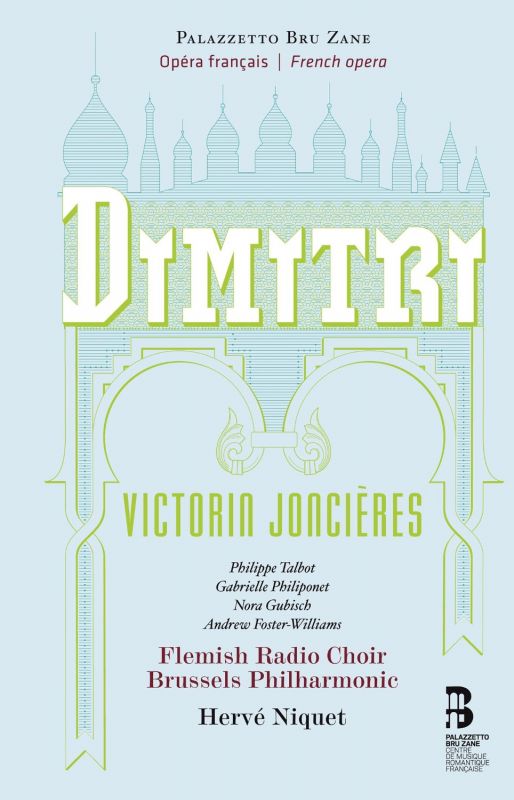JONCIÈRES Dimitri
View record and artist detailsRecord and Artist Details
Composer or Director: Victorin Joncières
Genre:
Opera
Label: Ediciones Singulares
Magazine Review Date: 09/2014
Media Format: CD or Download
Media Runtime: 130
Mastering:
DDD
Catalogue Number: ES1015

Tracks:
| Composition | Artist Credit |
|---|---|
| Dimitri |
Victorin Joncières, Composer
Andrew Foster-Williams, Le Comte de Lusace, Bass-baritone Brussels Philharmonic Orchestra Flanders Opera Children's Chorus Gabrielle Philiponet, Marina, Soprano Hervé Niquet, Conductor Jean Teitgen, Le Roi de Pologne, Bass Jennifer Borghi, Vanda, Mezzo soprano Joris Derder, Le Chef des Bohémiens; Un Officier, Baritone Julien Véronèse, Le Prieur, Baritone Lore Binon, Une Dame d'honneur, Soprano Nicolas Courjal, L'Archevêque Job, Bass Nora Gubisch, Marpha, Mezzo soprano Philippe Talbot, Dimitri, Tenor Victorin Joncières, Composer |
Author: Geoffrey Norris
Joncières had clearly absorbed what he could from Meyerbeer, Weber, Gounod, Verdi and others. Despite Meistersinger-like traits in the overture, any influence from Wagner probably lay more in the use of leitmotif than in dramatic structure: the longest aria in Dimitri (which is, essentially, a number opera) lasts only three minutes. But in total there is over two hours’ music here. It veers alarmingly from one style to another and is punctuated by some truly clunking gear-changes, but it has pace and punch. Within its conventional arioso-aria-chorus framework, Joncières finds a passionate impulse for Marina and Dimitri (or Vasili, as he is known in the first act), and the ensuing love triangle with Vanda (cousin of the King of Poland) adds a touch of pathos and tension. In general Joncières rises vocally to the occasion in the ups and downs of the heated drama, sometimes, as in the Act 3 encounter between Marina and the widow of Ivan the Terrible, with an invigorating thrill. This performance manifestly believes in Dimitri, and the fusion of fine, fervent singing and vivid, pointed orchestral playing lends it precisely the impetus and theatrical presence that, in its day, rendered the opera such a popular success.
Explore the world’s largest classical music catalogue on Apple Music Classical.
Included with an Apple Music subscription. Download now.

Gramophone Digital Club
- Digital Edition
- Digital Archive
- Reviews Database
- Events & Offers
From £9.20 / month
Subscribe
Gramophone Club
- Print Edition
- Digital Edition
- Digital Archive
- Reviews Database
- Events & Offers
From £11.45 / month
Subscribe
If you are a library, university or other organisation that would be interested in an institutional subscription to Gramophone please click here for further information.






